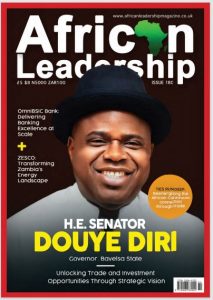African politics has made notable progress in the pursuit of gender parity, yet significant challenges persist. Women across the continent are increasingly claiming space in political leadership, marking a shift towards more inclusive governance. However, despite international commitments and regional initiatives aimed at empowering women in politics, considerable barriers remain. As of 2023, women hold an average of 24% of parliamentary seats in Africa, according to the United Nations Development Programme (UNDP). Although this is higher than the global average, gender inequality remains pervasive in African politics.
Achieving gender parity is not solely about equal representation but about fostering inclusive, diverse, and effective governance. Gender equality in leadership is a cornerstone of democratic governance and contributes to more balanced decision-making processes. As efforts to attain gender parity in African politics continue, it is crucial to examine the strategies that have fostered progress, the challenges that persist, and potential ways forward.
One impactful strategy has been the introduction of gender quotas, ensuring a minimum percentage of elected representatives are women. Countries such as Rwanda and South Africa have seen success through implementing these quotas. In Rwanda, women hold 61.25% of parliamentary seats—the highest proportion globally in 2023. South Africa and Namibia have also used gender quotas to boost female representation in political offices, demonstrating the power of legal mandates in shifting the balance of power.
Another important approach has been investing in capacity-building programmes that equip women with the necessary skills for political leadership. Organisations like UN Women and the African Women Leaders Network (AWLN) offer leadership training, mentorship, and advocacy, empowering women to navigate traditionally male-dominated political spaces. These initiatives ensure women are not only present in political spaces but also effective in leadership roles.
Reforms within political parties have also been crucial in increasing women’s participation. Many parties have established women’s wings or committees that advocate for gender parity and include women in key decision-making processes. In Uganda, such efforts have contributed to a rise in female representation at the national level. Encouraging more political parties across the continent to adopt similar reforms could significantly advance gender equality in politics.
Public awareness campaigns have played a central role in altering perceptions of women in leadership. Historically, cultural and societal norms across Africa have dictated that politics is a male domain. International bodies such as the United Nations and the African Union (AU), alongside local civil society groups, have launched campaigns to shift public attitudes. These campaigns highlight the value of women’s leadership, challenge stereotypes, and foster an environment where women are more likely to be supported as political candidates.
International and regional organisations such as the AU, UNDP, and the African Development Bank (AfDB) have provided funding and technical support to help African nations achieve gender parity. The AU’s 10-Year Action Plan on Gender Equality, launched in 2021, offers clear guidelines for increasing women’s political participation. Sustained international support will enable African countries to build the infrastructure necessary to promote gender equality more effectively.
Obstacles to Gender Parity
Despite these strategies, deeply entrenched cultural and social norms continue to hinder women’s full political participation. In many African societies, traditional gender roles persist, with women expected to focus on domestic duties rather than public life. These views discourage women from pursuing political careers and often result in a lack of support from male-dominated political networks. In countries like Somalia and Chad, conservative cultural attitudes pose significant barriers to women’s political empowerment.
Economic disparities also compound the challenges women face in politics. Running for office is costly, and women often lack the financial resources to fund competitive campaigns. The World Economic Forum’s 2023 Global Gender Gap Report revealed that women in Africa earn about 70% of what men earn, putting them at a disadvantage in financing political campaigns. This economic inequality limits women’s ability to compete in elections and reinforces their exclusion from political life.
Gender-based violence (GBV) is another significant obstacle. Women who run for office are frequently targets of violence, harassment, and intimidation, creating a hostile environment that deters many from pursuing political careers. A 2023 report by UN Women noted an increase in political violence against women, with many facing targeted attacks during election periods. This violence silences women’s voices and prevents them from fully engaging in governance.
Weak legal frameworks and poor enforcement of existing gender parity laws further impede progress. While many African nations have laws aimed at promoting gender equality in politics, these are often poorly enforced. Gender quotas, for example, may be mandated by law, but without effective enforcement mechanisms, they fail to achieve the desired impact. Corruption, electoral fraud, and weak judicial systems further undermine the enforcement of gender parity laws.
Male-dominated political networks remain another barrier, as they limit women’s access to the resources and connections necessary to succeed in politics. These networks play a crucial role in securing nominations, financial backing, and political coalitions, and without access to them, many women struggle to break into the political arena. Establishing inclusive networks that actively support women is essential for achieving gender parity in African politics.
The Way Forward
To overcome these obstacles, a multifaceted approach is needed. Firstly, more countries should adopt and enforce gender quotas, as they have proven highly effective in increasing female representation. However, quotas alone are insufficient. Strong legal frameworks must accompany them, with penalties for non-compliance.
Efforts to change cultural norms must also continue, as deeply ingrained biases about women’s roles in society remain one of the biggest barriers to gender parity. Public awareness campaigns, led by both international organisations and local civil society, should focus on shifting perceptions and creating an environment in which women are seen as capable leaders. Education systems should also play a role in promoting gender equality by challenging traditional gender roles from a young age.
READ ALSO: Lessons from Resilient Women in the DRC
Economic empowerment is another crucial factor. Governments and international bodies must invest in programmes that provide women with access to financial resources and training, allowing them to compete equally with men in the political arena. Addressing the economic barriers preventing women from running for office is essential for achieving gender parity.
Finally, tackling gender-based violence is critical for creating a safe and supportive environment for women in politics. Governments must prioritise the protection of female candidates and politicians, ensuring they can participate without fear of violence or harassment. Legal frameworks should specifically address political violence against women, and these laws must be strictly enforced.
The pursuit of gender parity in African politics is both challenging and essential. While progress has been made through strategies such as gender quotas, capacity-building programmes, and political reforms, substantial obstacles remain. Cultural norms, economic disparities, gender-based violence, and weak legal enforcement continue to limit women’s participation in politics. However, with continued commitment from governments, civil society, and international organisations, gender parity in African politics is achievable. Breaking down these barriers will enable Africa to fully harness the potential of its women leaders, resulting in more inclusive, equitable, and effective governance.




